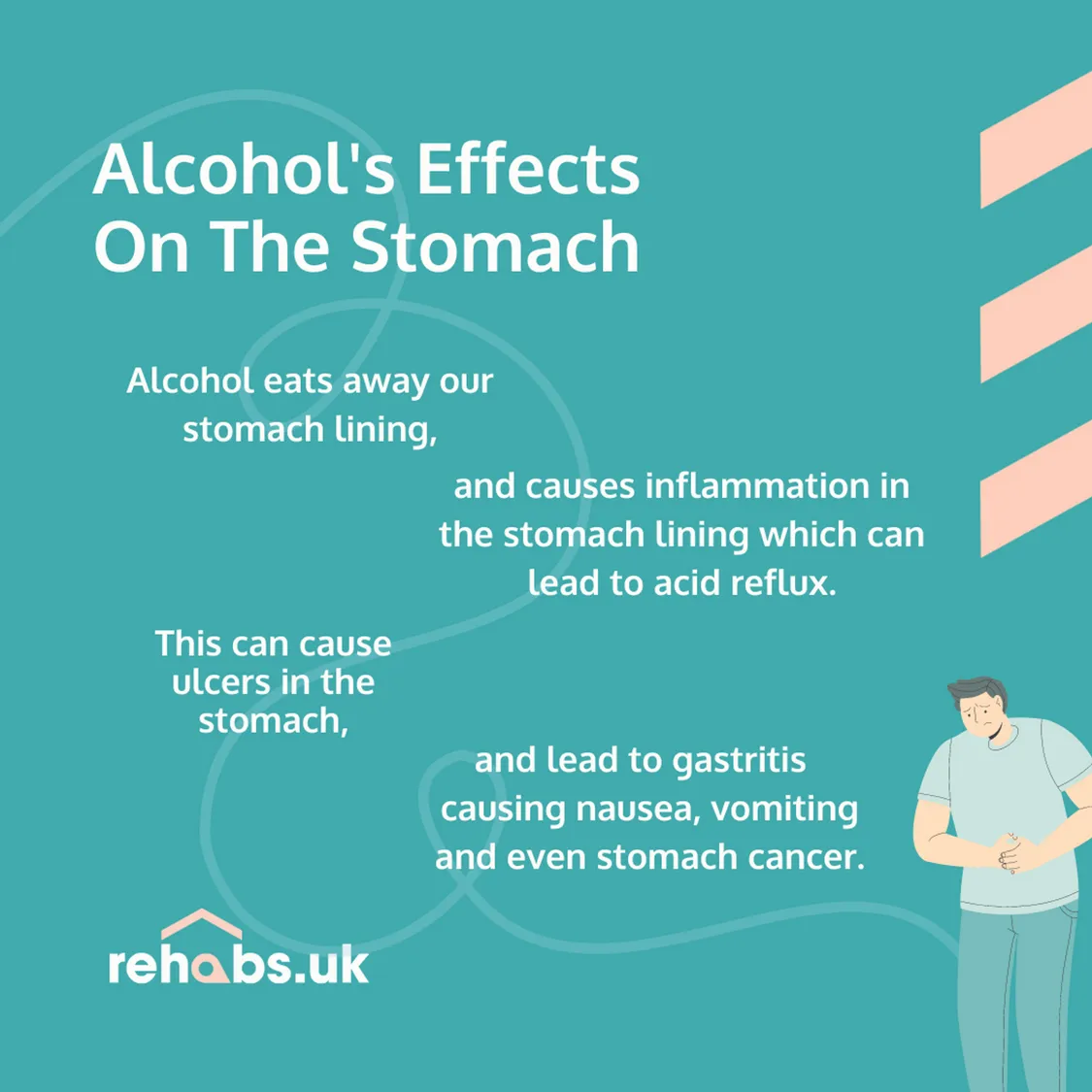07 Jul 2023
The Effects of Alcohol on Your Stomach
Alcohol consumption is a common social activity for many individuals, but have you ever wondered how it affects your stomach? From increased stomach acid levels to reduced effectiveness in digestion, alcohol can have various adverse effects on this vital organ. In this blog, we will explore the impact of alcohol on the stomach, covering both short-term and long-term effects, as well as the conditions that can arise from alcohol addiction. We will also discuss ways to reduce the risk of alcohol damaging your stomach and provide information on getting help with alcohol addiction.
Conditions Caused by Alcohol Addiction
Alcohol addiction can lead to several health problems, some of which directly impact the stomach. Let's take a closer look at these conditions, their causes, and potential remedies.
Gastritis: Gastritis refers to the inflammation of the stomach lining. Alcohol is a common trigger for this condition, as it can irritate and damage the protective lining, leading to inflammation. The National Health Service (NHS) provide valuable insights into the causes, symptoms, and treatment options for gastritis.
Stomach ulcers: Alcohol consumption can also increase the risk of developing stomach ulcers. The excessive use of alcohol damages the lining of the stomach and weakens its ability to protect against digestive acids. This, in turn, can result in the formation of painful ulcers. The NHS offers in-depth information on stomach ulcers and how alcohol contributes to their development.
Reflux: Alcohol relaxes the lower oesophageal sphincter, the muscle responsible for keeping stomach acid from flowing back into the oesophagus. This relaxation can lead to acid reflux, a condition where stomach acid irritates the lining of the oesophagus. Alcohol exacerbates this issue, making it important to understand the connection between alcohol consumption and reflux symptoms. UK-based sources like Guts UK can provide further guidance.
Varices: Long-term alcohol abuse can cause the development of varices, which are enlarged veins in the stomach or oesophagus. These veins are prone to bleeding and can be life-threatening if left untreated. The British Liver Trust offers comprehensive information on varices, their causes, and potential treatment options.
Stomach cancer: Although not solely caused by alcohol, heavy and prolonged alcohol consumption is a risk factor for stomach cancer. UK cancer research organisations such as Cancer Research UK provide resources on the relationship between alcohol and cancer, including stomach cancer.
Other Problems: In addition to the conditions mentioned above, alcohol addiction can contribute to a range of other stomach-related issues, such as malabsorption of nutrients, pancreatitis, and liver disease.
Short-Term Effects of Alcohol on the Stomach
When alcohol is consumed, it affects various parts of the body, including the stomach. Here are some short-term effects of alcohol on the stomach:
- Increased Acid Production: Alcohol stimulates the production of stomach acid, leading to increased levels of gastric acid secretion. This can result in irritation and inflammation of the stomach lining.
- Irritation and Inflammation: Alcohol can directly irritate the sensitive lining of the stomach, causing inflammation and redness. This irritation may lead to symptoms such as nausea, vomiting, and stomach pain.
- Delayed Stomach Emptying: Alcohol can slow down the movement of food through the stomach and the rate at which it is emptied into the small intestine. This delay in stomach emptying, known as gastric emptying, can contribute to feelings of fullness, bloating, and discomfort.
- Aggravation of Existing Conditions: If you already have a pre-existing stomach condition, such as acid reflux or peptic ulcer disease, alcohol can exacerbate these conditions and intensify the associated symptoms.
Long-Term Effects of Alcohol on the Stomach
In addition to the conditions mentioned earlier, long-term alcohol consumption can lead to an increased risk of weight gain and stomach infections. Alcohol is high in calories and can contribute to weight gain, which can further increase the risk of developing stomach-related health issues. Prolonged alcohol abuse can also weaken the immune system, making the stomach more susceptible to infections.
How to Reduce the Risk of Alcohol Damaging Your Stomach
The most obvious way to reduce the risk of alcohol damaging your stomach is to reduce or eliminate alcohol consumption. However, there are other steps you can take to protect your stomach health. Drinking isotonic fluids can help maintain hydration and restore electrolyte balance. Avoiding foods that are likely to irritate the stomach, such as spicy or acidic foods, can also be beneficial.

Helping You or a Loved One Get Help with Alcohol Addiction
If you or a loved one is struggling with alcohol addiction, it is important to seek help. Get in contact with our specialised team at Rehabs UK. Consulting with healthcare professionals, therapists, or counsellors can provide valuable guidance and treatment options tailored to individual needs.
